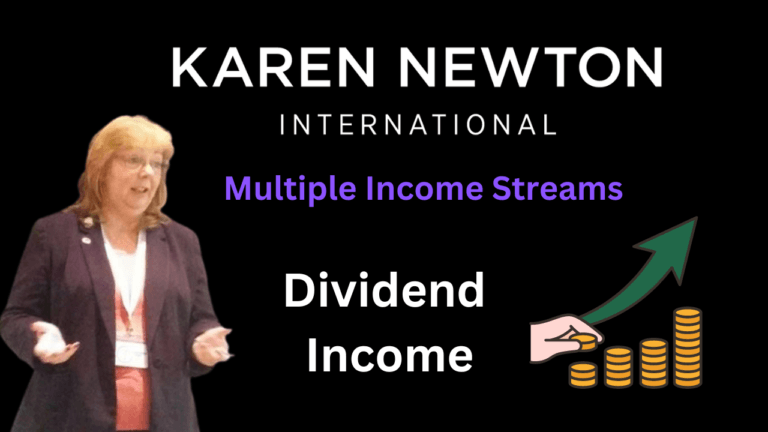Traders Vs Investors
The Key Differences Between Traders and Investors
Over 400 years ago, in 1611, the Dutch East India Corporation became the first company to list shares on a stock exchange in Amsterdam. Since then, stock exchanges have emerged worldwide, with trillions of shares traded daily. While fortunes are made and lost regularly, success in the stock market depends on understanding whether you have the mindset of a trader or an investor. Choosing the wrong strategy can lead to significant financial losses.
Table of Contents
- The Key Differences Between Traders and Investors
- Trading vs. Investing: Understanding the Differences
- Mindset Matters: Are You a Trader or an Investor?
- Short-Term vs. Long-Term Gains
- Who Makes More Money?
- Can You Trade and Invest at the Same Time?
- FAQ: Common Questions About Trading and Investing
- Trading vs. Investing – Which is Best?
Trading vs. Investing: Understanding the Differences
What is Trading?
Traders focus on short-term price movements and trade frequently to capitalize on market trends. Their strategy is based on price fluctuations and market momentum, with the goal of making quick profits. Traders can profit whether markets rise or fall by accurately predicting trends. Their success relies on understanding market psychology, technical indicators, and risk management.
What is Investing?
Investors, on the other hand, take a long-term approach. They look for undervalued assets and hold them over time, benefiting from price appreciation and dividends. Instead of following short-term market trends, investors adopt a contrarian approach—buying when prices are low and selling when prices rise. The reinvestment of dividends is a crucial component of wealth-building for investors, as it compounds growth over time.
Mindset Matters: Are You a Trader or an Investor?
Your mindset plays a crucial role in determining whether you are suited for trading or investing.
The Trader’s Mindset
Traders operate with two primary emotions: fear and greed. A trader must recognize which emotion dominates their decision-making process, as using the wrong strategy can lead to poor outcomes. Many professional traders work with trading psychologists to refine their mental approach, helping them to improve risk-reward ratios and maintain discipline.
The Investor’s Mindset
Investors are patient and strategic. They monitor markets for the right opportunities, investing when assets are undervalued. Their portfolios often include a variety of assets, such as stocks, bonds, real estate, cryptocurrency, and precious metals. Successful investors do not rush decisions but wait for the right timing, knowing that markets operate in cycles.
Short-Term vs. Long-Term Gains
- Traders follow short-term trends, making quick transactions and profiting from brief price movements.
- Investors hold assets for the long term, sometimes decades, allowing their wealth to grow through capital appreciation and compounding returns.
Market cycles impact both traders and investors. While traders seek to profit from short-term fluctuations, investors analyze data to understand where the market cycle is heading, ensuring they buy assets at the right time and hold for optimal returns.
Who Makes More Money?

The University of Chicago Booth School of Business compared traders and investors:
- Skilled traders can achieve 10%-15% returns per month on individual trades, but sustaining such performance over a year is rare.
- Investors, however, consistently generate 10%-15% annual returns and benefit from compounding growth over time.
Globally, traders generate around $100 billion per year, while investors make over $10 trillion annually—showing that long-term investors significantly outperform traders in wealth creation.
A Credit Suisse report found that the number of millionaires grew from 54 million in 2020 to a projected 83 million by 2025, largely due to investors acquiring and holding assets over time.
Can You Trade and Invest at the Same Time?
Yes! While trading and investing require different strategies and mindsets, they can be used together. Traders can allocate a portion of their profits to long-term investments, creating a balanced approach that benefits from both short-term gains and long-term wealth accumulation.
However, the key question remains: Does the trader have the discipline, knowledge, and mindset required for trading success? If not, a long-term investment strategy may be the better approach.
At Karen Newton International, we provide coaching and joint venture opportunities for share investing, including strategies for monthly dividend investing and portfolio growth
FAQ: Common Questions About Trading and Investing
1. What are the different types of trading strategies?
- Day Trading: Buying and selling assets within the same day to profit from intraday price movements.
- Swing Trading: Holding trades for several days or weeks to capture short- to medium-term trends.
- Scalping: Making multiple trades throughout the day to profit from small price movements.
- Momentum Trading: Trading assets that are moving strongly in one direction due to high volume.
2. What are the different types of investment strategies?
- Value Investing: Buying undervalued stocks and holding them long-term (e.g., Warren Buffett’s strategy).
- Growth Investing: Investing in companies expected to grow at an above-average rate.
- Dividend Investing: Focusing on stocks that pay consistent dividends to generate passive income.
- Index Fund Investing: Buying into index funds like the S&P 500 to diversify and reduce risk.
- Asset Allocation: Spreading investments across multiple asset classes (stocks, bonds, real estate, etc.).
3. Which strategy is best for beginners?
For beginners, investing is generally safer, especially in diversified funds or dividend stocks. Trading requires significant experience, discipline, and market knowledge to be consistently profitable.
4. What tools do traders and investors use?
- Traders use short-term charts (1-minute, 5-minute, 1-hour) and technical indicators.
- Investors use long-term charts (1-month, 6-month, yearly) and fundamental analysis.
- Both use market data but interpret it differently based on their strategies.
5. Can you switch between trading and investing?
Yes! Many experienced market participants use a hybrid approach—trading for short-term gains while investing in long-term assets for wealth-building.
Trading vs. Investing – Which is Best?
A highly skilled trader with a solid track record can make significant short-term profits, but trading requires extensive experience and discipline. In contrast, long-term investors consistently build wealth over time, benefiting from compounding and market cycles.
Ultimately, the best approach depends on your mindset, skills, and financial goals. Understanding your strengths and choosing the right strategy is the key to financial success.
At Karen Newton International, we help individuals navigate both trading and investing strategies to build sustainable wealth.

Karen Newton is a Business and Wealth Strategist, 3x International Bestselling Author, and founder of Karen Newton International. She combines practical experience with AI-Powered Entrepreneurship to help smart entrepreneurs build online income, invest strategically, and create long-term wealth through business growth, investments and joint ventures.







